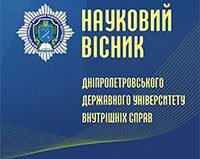Nataliia OBUSHENKO, Liliia MEZHEVSKA
OBUSHENKO N., MEZHEVSKA L. (2022), The qualitative and effective influence of international legal acts on the formation of labor legislation in Ukraine, Scientific Bulletin of Dnipropetrovsk State University of Internal Affairs, №4, 151-156
DOI: 10.31733/2078-3566-2022-4-151-156
ABSTRACT. The article reveals that when studying the problem of systematization of labor legislation, special attention should be paid to international legal acts. In general, international legal acts should be understood as an official document that was adopted at the international level in accordance with the norms of international law, aimed at regulating the most important legal relations. Contractual norms form the basis of international law, on the basis of which the structure of legal relations in all spheres of this field is built. The subject of international legal regulation is only such activity that is socially significant in the international arena, that is, it is of interest to other states and to the functioning of the international system in general. The article highlights that in view of the fundamental nature of labor relations in all countries of the world, international legal regulation of labor has great practical significance and wide application, since law affects social relations primarily through the process of legal regulation, ensuring the real impact of international legal norms on social life and is possible only if the real content of the regulatory properties of the relevant norms is manifested through the process of their implementation.
The article states that, like any other rule-making activity, international rule-making ends with the adoption of the relevant act. Most often, international legal acts are created in the form of treaties (agreements, conventions, protocols, etc.). An international normative-legal agreement (hereinafter referred to as an international agreement) is voluntarily agreed upon by several international entities that have authority, social and legal relations, and general rules of conduct concluded in writing and regulated by the norms of international law, regardless of whether they are contained in one or more related documents, and from their specific name (agreement, treaty, convention, protocol, etc.). International treaties are the main source of legal regulation of relations arising in the foreign economic sphere. Norms and principles regulating international relations in the foreign economic sphere are established in them; the agreements of the parties on the creation of binding rules of conduct for them are recorded in a specific form, the establishment, change or termination of mutual rights and obligations are regulated. International regulatory legal acts in the field of labor should be understood as such acts that were developed and adopted by special international organizations in accordance with the norms of international legislation and which, after their ratification, become part of domestic labor legislation.
Keywords: international normative legal act, international level, norm of international legislation, international legal regulation, contractual norms, international legal position, international rulemaking, agreements, conventions, protocols, international legal personality, legal force of an international agreement.
References
- Sirokha, D. I. (2015) Sutnistʹ mizhnarodnoyi normotvorchosti u sferi pratsi [The essence of international norm-making in labor area]. Naukovyy visnyk Khersonsʹkoho derzhavnoho universytetu. Seriya : Yurydychni nauky. Vol. 6, pp. 87-89. [in Ukr.].
- Nihreyeva, O. O. (2014) Pravotvorchistʹ u mizhnarodnomu pravi: do pytannya vyznachennya [Law-making in international law: to the matter of definition]. Alʹmanakh mizhnarodnoho prava. 2014. Issue 4, pp. 35-42. [in Ukr.].
- Zinʹ, E. A., Duka, N. S. (2009) Osnovy zovnishnʹoekonomichnoyi diyalʹnosti [Basics of foreign economic activity] : pidruch. / za red. d-ra ekon. nauk, prof. E. A. Zinya. Kyiv : Kondor, 432 p. [in Ukr.].
- Kostyuk, V. (2012) Rolʹ Orhanizatsiyi Obʺyednanykh Natsiy ta Mizhnarodnoyi orhanizatsiyi pratsi u mizhnarodno-pravovomu rehulyuvanni trudovoyi pravosubʺyektnosti [The role of the United Nations and the International Labor Organization in the international legal regulation of labor legal personality]. Publichne pravo. № 4, pp. 151–157. [in Ukr.].
- Chornous, O. V. (2012) Dzherela mizhnarodno-pravovoho rehulyuvannya pratsi ta yikh vplyv na natsionalʹne zakonodavstvo [Sources of international labor regulation and their impact on national legislation]. Pravo i bezpeka. № 4, pp. 249-253. [in Ukr.].
- Mizhnarodna konventsiya pro likvidatsiyu vsikh form rasovoyi dyskryminatsiyi [International Convention on the Elimination of All Forms of Racial Discrimination] : mizhnarodnyy dokument vid 21.12.1965 r. № 995_105. URL: https://zakon.rada.gov.ua/laws/show/995_105. [in Ukr.].
- Konventsiya Orhanizatsiyi Obʺyednanykh Natsiy pro likvidatsiyu vsikh form dyskryminatsiyi shchodo zhinok [United Nations Convention on the Elimination of All Forms of Discrimination against Women] : mizhnarodnyy dokument vid 18.12.1979 № 995_207. URL : https://zakon.rada.gov.ua/laws/show/995_207. [in Ukr.].
